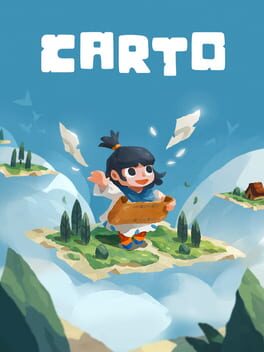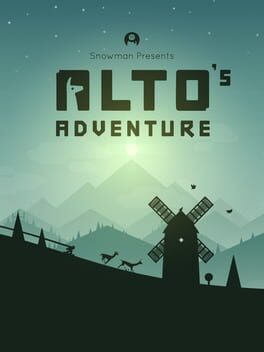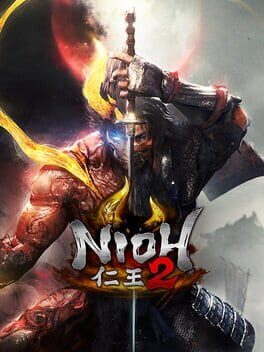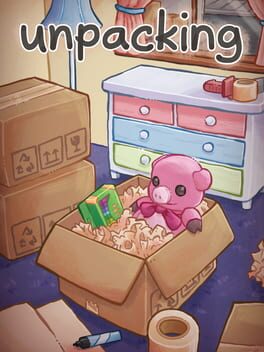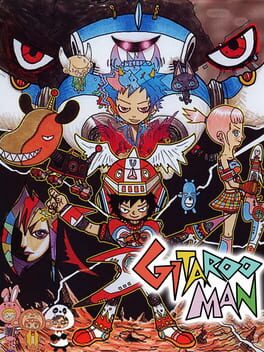AutumnLily
Despite its title this can't help be feel like as much a sequel to Demon's Souls. Partly this is down to the structure of the game, a central hub area branching off into a few different independent linear routes that you can tackle in any order you want before the game ultimately culminates in you finding and killing the monarchy of this land.
Partly this is down to the almost reckless creativity on display. If Dark Souls took the things from Demon's Souls that really worked and cut away the bits that arguably didn't, Dark Souls 2 has not a care in the world instead saying lets fuck around and find out. This was very much to my frustration in my first playthrough, but returning to this game a year later a lot of the things that previously frustrated me are honestly just endearing. As rough edges go, I think there's a lot of charm and personality to these ones.
Returning to this game in a post-Elden Ring world was also a lot of fun to me. People disparagingly compare that game to Dark Souls 2 occasionally, but I feel like playing Elden Ring taught me a lot about how to enjoy playing Dark Souls 2. It turns out a lot of the parts of Dark Souls 2 that are decried as being unfair are actually much more reasonable when you take advantage of all the tools the game gives you. This playthrough I abandoned my usual approach of just two-handing the chonkiest sword I could find all by my lonesome to instead play an extremely-multiclass build (turns out the excessive number of levels DS2 hands you are perfect for enabling you to dabble in everything) with summons alongside me and I actually had just a great time.
That's not to say there aren't some problems with the game even outside of the notorious Dark Souls 2 weirdness, and the last portion of my run was honestly a bit exhausting; I think the pile of dlc the game has is both very overhyped, and kind of excessive considering how gargantuan the base game already is. That said, somehow, I sit here a convert. Despite all its problems Dark Souls 2 is actually a rather delightful oddity.
Partly this is down to the almost reckless creativity on display. If Dark Souls took the things from Demon's Souls that really worked and cut away the bits that arguably didn't, Dark Souls 2 has not a care in the world instead saying lets fuck around and find out. This was very much to my frustration in my first playthrough, but returning to this game a year later a lot of the things that previously frustrated me are honestly just endearing. As rough edges go, I think there's a lot of charm and personality to these ones.
Returning to this game in a post-Elden Ring world was also a lot of fun to me. People disparagingly compare that game to Dark Souls 2 occasionally, but I feel like playing Elden Ring taught me a lot about how to enjoy playing Dark Souls 2. It turns out a lot of the parts of Dark Souls 2 that are decried as being unfair are actually much more reasonable when you take advantage of all the tools the game gives you. This playthrough I abandoned my usual approach of just two-handing the chonkiest sword I could find all by my lonesome to instead play an extremely-multiclass build (turns out the excessive number of levels DS2 hands you are perfect for enabling you to dabble in everything) with summons alongside me and I actually had just a great time.
That's not to say there aren't some problems with the game even outside of the notorious Dark Souls 2 weirdness, and the last portion of my run was honestly a bit exhausting; I think the pile of dlc the game has is both very overhyped, and kind of excessive considering how gargantuan the base game already is. That said, somehow, I sit here a convert. Despite all its problems Dark Souls 2 is actually a rather delightful oddity.
2020
The cutesy indie game habit of sanding every conceivable edge off is frustratingly in full force here. The map-orientation-based puzzle gameplay shows some promise early on but Carto is afraid to truly follow through on this and show the real potential of these mechanics either because it doesn't know how to or because it's afraid that doing so would risk alienating some of its audience. The overall quality of the game is honestly better than this rating indicates, but I found the experience to ultimately just be so disappointing in how underdeveloped and utterly toothless it is.
2015
Alto's Adventure makes me wonder if endless-runner games - even absent of the predatory microtransaction bullshit that plagues this genre - just have an inherent harmfulness to them that you have to actively resist when designing them. Sure Alto's Adventure never once asked for me to give it money but even despite this addiction loops are still baked so deeply into the game's core, so many little aspects that try to make you compulsively, instinctively start 'one more run' until suddenly you're ten more runs deep, deeply cynical, hollow design that wants you to give up your agency. It is less rotten that its brethren, and even has moments where it is legitimately pleasant to play, but I still think this game's attitude towards its players is just unforgivable.
2020
One of the easiest ways to turn me off a game is to say it features skill trees, diabloot and a mass of unnecessary systems. To my surprise however, despite a rough first handful of hours, the systems of Nioh 2 really started to grow on me. I'm certainly not smart enough to wrap my head around the nuances of stance-switching or how to take full advantage of the blacksmith, and the looting system does in fact suck as you proceed to sell well over 99% of the gear you pick up, but there's a lot of really good stuff here; the magic and ninja skills both rule giving you a wide variety of ways to tune your play-style and allowing basically all builds to have easy access to some fun tools, the design of the bow-and-arrow in this game lends itself so well to both stealthily sneaking around but also to frantically picking off enemies as they charge towards you and the bow being so good means level and encounter design can be handled in a way that acknowledges you will be using the bow a bunch (something that Dark Souls, with its clunky bow set-up, would never be able to get away with), and there's just generally a lot of options for how to craft your build even if like me you don't really understand half the systems in the game. And so, what I feared might be the thing to turn me off the game actually became possibly my favourite part.
I think my biggest complaint with Nioh 2 ultimately boils down to it being too long, and there just being too much content. Even if you ignore all the side content in the game the playtime is still massive and yet well over 30 hours in I was still seeing the same collection of yokai and human enemies that I'd been fighting all along; the pool of enemies is very slim for a game that is so large, and no enemy is allowed to remain a unique, memorable encounter with everything you find instead becoming fodder to be sprinkled throughout every region for the rest of the game. The gorgon enemies were really memorable when I first encountered them, perfectly suiting the location they debut in and serving as a nice build-up to the snake boss, only for those very same gorgons to be repeatedly re-used thereafter in places that made a lot less sense; it's exhausting having every cool moment get reused so aggressively for the sake of padding out the game.
Level design suffers similarly too as, even if you ignore the side content that largely straight up reuses levels you've beaten, a lot of the levels feel just so similar; the fifth? eighth? tenth? time I found myself fighting through yet another Japanese castle estate, both blending together with all the others before it and blending together with itself as so many of the streets start to just look the same, I kind of lost all hope for the game actually wowing me rather than just going through the motions. There's some nice moments in there, and the gameplay loop is very solid, but sometimes it feels like the gameplay loop - and the desire to make the gameplay loop last for as long as humanly possible - is all there really is.
Even the story suffers from the game's gargantuan size. I don't know if I would have enjoyed it more were the game smaller - there are a lot of characters and basically none of them did the game try to make me care about - but it's kind of just set up to fail because there will often be as many as a couple hours between individual story beats as you have to plow your way through yet another massive level to get to the next cutscene; and again, this is if you aren't doing any side-content.
This review likely comes off as very negative, so to be clear; much of my time with this game was enjoyable, and a few of these problems only started to truly nag at me after I had been playing for quite a while. The systems are surprisingly good, many of the boss battles are great, but my fun little electricity-based build I threw together felt like it was already as complete as it would ever be and I am apparently a bit under two-thirds of the way through the game and even I - someone who tries to finish almost any game they play - reached the point where I just can't bring myself to care anymore. There are only so many times I can run down the same hallways and fight the same enemies with the same moves before I start to wish the game would hurry itself towards actually wrapping up.
I think my biggest complaint with Nioh 2 ultimately boils down to it being too long, and there just being too much content. Even if you ignore all the side content in the game the playtime is still massive and yet well over 30 hours in I was still seeing the same collection of yokai and human enemies that I'd been fighting all along; the pool of enemies is very slim for a game that is so large, and no enemy is allowed to remain a unique, memorable encounter with everything you find instead becoming fodder to be sprinkled throughout every region for the rest of the game. The gorgon enemies were really memorable when I first encountered them, perfectly suiting the location they debut in and serving as a nice build-up to the snake boss, only for those very same gorgons to be repeatedly re-used thereafter in places that made a lot less sense; it's exhausting having every cool moment get reused so aggressively for the sake of padding out the game.
Level design suffers similarly too as, even if you ignore the side content that largely straight up reuses levels you've beaten, a lot of the levels feel just so similar; the fifth? eighth? tenth? time I found myself fighting through yet another Japanese castle estate, both blending together with all the others before it and blending together with itself as so many of the streets start to just look the same, I kind of lost all hope for the game actually wowing me rather than just going through the motions. There's some nice moments in there, and the gameplay loop is very solid, but sometimes it feels like the gameplay loop - and the desire to make the gameplay loop last for as long as humanly possible - is all there really is.
Even the story suffers from the game's gargantuan size. I don't know if I would have enjoyed it more were the game smaller - there are a lot of characters and basically none of them did the game try to make me care about - but it's kind of just set up to fail because there will often be as many as a couple hours between individual story beats as you have to plow your way through yet another massive level to get to the next cutscene; and again, this is if you aren't doing any side-content.
This review likely comes off as very negative, so to be clear; much of my time with this game was enjoyable, and a few of these problems only started to truly nag at me after I had been playing for quite a while. The systems are surprisingly good, many of the boss battles are great, but my fun little electricity-based build I threw together felt like it was already as complete as it would ever be and I am apparently a bit under two-thirds of the way through the game and even I - someone who tries to finish almost any game they play - reached the point where I just can't bring myself to care anymore. There are only so many times I can run down the same hallways and fight the same enemies with the same moves before I start to wish the game would hurry itself towards actually wrapping up.
2018
Very charming and chilled out. I can definitely understand criticising this game for not doing enough with its concept (in particular the puzzles are all incredibly simple), or having the levels be so deeply linear (in stark contrast to the Katamari games), but considering how many games nowadays are Far Too Long it was lovely playing something so confident in its concision.
2021
I really enjoyed the gentle environmental storytelling here, so many details that can be inferred from what items stick around between moves and which ones fall behind which in turn informs how you choose to sort and decorate these rooms, making the practical layout line up as best as possible with your understanding of the protagonist and how they'd use the space. There's some really lovely stuff here about how as we grow we both keep some parts of ourself whilst shedding others, and how moving home can be a moment that brings these changes into focus.
As much as those aspects of the game resonated, I'm filing Unpacking under "I wish this was a bit less of a game". At the end of every level, after decking out your new home, the game will highlight any objects that are out of place with a red outline if they're in the 'wrong' place, and then you get the job of placing each of those items in however many locations until they're in the 'right' place instead. So many of these placement rules feel arbitrary or even downright silly, and whilst I understand that the developers don't want you doing nonsense like putting toilet paper in the kitchen sink I did find myself wishing that I could be trusted a bit more to place things where they feel right to me. Not dissimilarly, everything feels a bit too neat to me at times; so often the amount of underwear you have will perfectly fill exactly one drawer, for example, which does partly undo the feeling of this as a life being lived.
Still very much liked the vibes of this game, and generally enjoyed the experience.
As much as those aspects of the game resonated, I'm filing Unpacking under "I wish this was a bit less of a game". At the end of every level, after decking out your new home, the game will highlight any objects that are out of place with a red outline if they're in the 'wrong' place, and then you get the job of placing each of those items in however many locations until they're in the 'right' place instead. So many of these placement rules feel arbitrary or even downright silly, and whilst I understand that the developers don't want you doing nonsense like putting toilet paper in the kitchen sink I did find myself wishing that I could be trusted a bit more to place things where they feel right to me. Not dissimilarly, everything feels a bit too neat to me at times; so often the amount of underwear you have will perfectly fill exactly one drawer, for example, which does partly undo the feeling of this as a life being lived.
Still very much liked the vibes of this game, and generally enjoyed the experience.
2001

